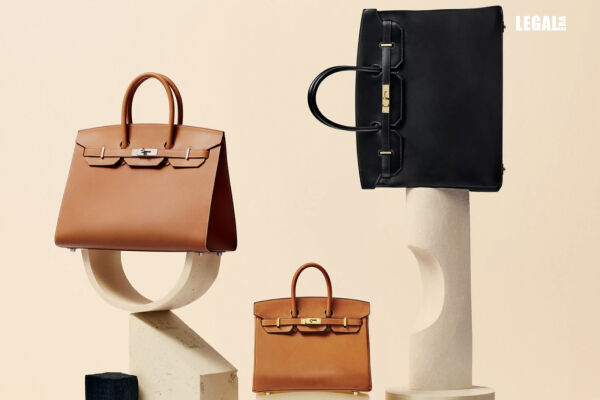
Antitrust lawsuit against Hermès claims unfair market control over Birkin bag purchases
Legal battle heats up over Hermès conditioning Birkin bag purchases on other product sales
In a significant legal development, three California consumers have announced their intention to challenge a court ruling that dismissed their class action lawsuit against the luxury brand Hermès. The lawsuit, filed last year, accuses the French fashion giant of violating U.S. antitrust laws by imposing unfair sales practices around its iconic Birkin handbags. The plaintiffs argue that Hermès has been conditioning the purchase of Birkins on customers spending large sums on ancillary products, such as scarves and jewellery. Now, these consumers are set to appeal the dismissal of their case, hoping to revive their legal battle in the 9th U.S. Circuit Court of Appeals.
Background of the Lawsuit
The lawsuit, formally titled Tina Cavalleri et al v. Hermes International et al, was filed in the U.S. District Court for the Northern District of California in 2024. The plaintiffs, residents of California, claim that Hermès uses an unlawful strategy to control the sale of its exclusive Birkin bags by requiring customers to make significant prior purchases before qualifying for the right to purchase a Birkin. This strategy is seen by the plaintiffs as an antitrust violation, as they argue that such practices restrict consumer choice and artificially inflate the market for the luxury brand’s products. The plaintiffs’ contention is that Hermès and its sales representatives knowingly induce customers to buy items like scarves, jewellery, and other accessories, with the promise of eventually being able to purchase a Birkin bag—a promise that may not always come to fruition. According to the lawsuit, many customers end up spending thousands of dollars on these ancillary products without ever being able to buy the coveted Birkin bag.
The Legal Ruling and Its Implications
In an April 2025 ruling, U.S. District Judge James Donato dismissed the plaintiffs’ claims, asserting that they had failed to define a relevant market or show that Hermès possesses market power. In his decision, Donato emphasized that Hermès could maintain its business model of restricting access to Birkin bags, noting that the company could “choose to make five Birkin bags a year and charge a million to them,” and that such a strategy would not, in itself, constitute an antitrust violation. The judge’s decision highlights the complexities of antitrust cases, particularly when it comes to luxury goods, where scarcity and exclusivity are central to the brand’s value. In essence, the court ruled that the plaintiffs did not present sufficient evidence to suggest that Hermès’ practices were monopolistic or anti-competitive under U.S. antitrust laws.
Hermès’ Defence and Market Competition
In defence of its practices, Hermès has maintained that the Birkin bag market operates in a highly competitive space, with prices for the bags often reaching thousands of dollars due to their handmade nature and exclusivity. Hermès has also asserted that its sales strategies are not coercive but instead reflect the company’s business model, which emphasizes exclusivity and luxury. Hermès’ legal team, including attorneys from Latham & Watkins, has argued that the company should not be forced to sell Birkins to every consumer who requests one. They defend the practice of requiring previous purchases, positioning it as a mechanism for managing demand and ensuring that their most coveted products remain exclusive to a select group of loyal customers.
Following the dismissal, the plaintiffs, represented by attorneys Joshua Haffner of Haffner Law and Shaun Setareh of Setareh Law Group, filed a notice of appeal to the 9th U.S. Circuit Court of Appeals. The appeal will focus on reversing Judge Donato’s ruling and providing an opportunity for the plaintiffs to present additional evidence and legal arguments. The outcome of this appeal could have significant consequences not only for Hermès but for other luxury brands with similarly exclusive sales practices. If the court agrees to revisit the case, it could potentially reshape the landscape of antitrust enforcement as it relates to high-end goods and market monopolization.
Potential Impact on the Luxury Goods Market
If the plaintiffs succeed in reviving their case, the implications could be far-reaching. A ruling in their favour might encourage scrutiny of other luxury brands’ sales practices, particularly those that restrict access to highly sought-after products through artificial means. Moreover, a decision against Hermès could prompt a re-evaluation of how exclusivity is defined in the luxury goods sector, challenging brands to reconsider their business models and sales strategies. On the other hand, a ruling in favour of Hermès would solidify the brand’s position in a competitive market, reinforcing the legality of its restrictive sales practices. It would also set a precedent for other luxury companies that rely on similar models of exclusivity to justify their pricing and sales tactics.
As this case moves to the appellate courts, the legal battle between Hermès and the California consumers will continue to unfold. The outcome of this appeal could have broad implications not just for Hermès but for the entire luxury goods industry. Whether or not the plaintiffs succeed in challenging Hermès’ sales practices, this case underscores the ongoing debate about the intersection of exclusivity, consumer rights, and antitrust law. For now, all eyes will be on the 9th Circuit to determine the future of the luxury brand’s business model and whether its sales tactics are in line with U.S. antitrust regulations.